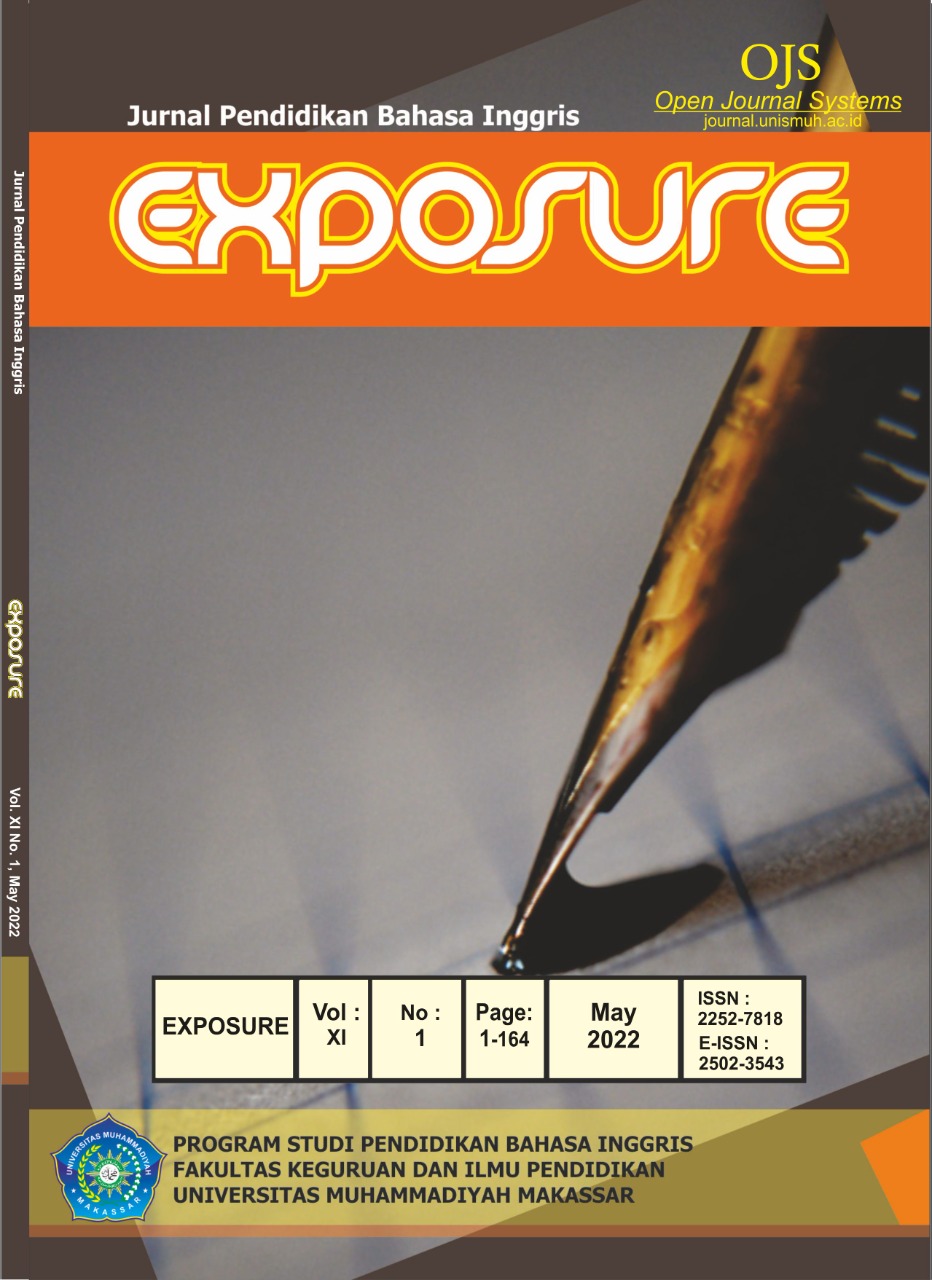USING DUOLINGO APPS TO IMPROVE ENGLISH READING COMPREHENSION OF ENGINEERING STUDENTS IN UNIVERSITAS BORNEO TARAKAN
DOI:
https://doi.org/10.26618/exposure.v11i1.6452Keywords:
Duolingo, Reading Comprehension, English Language LearningAbstract
Learning English is matter of learning language components and language skills. Reading is the most difficult learning that plays important role in mastering English Language. Learning reading is quite challenging. It needs various techniques and applications. The transformation of English language learning is mostly affected by technological advances. The development of English Language Teaching (ELT) resources, Duolingo participates to transform method of English language learning on smartphone. The aim of this study is to find out the impact of Duolingo in ELT as extensive learning. Pre-experimental design with pre-test and post-test was used in this research. The researcher involved 15 students as sample with 2 months practicing duolingo apps with 20 xp on each day intensity of practice. The researcher used reading tests as pre-test and post-test and questionnaire to see students’ perception. According to the results, there was massive improvement on students score. Students also felt that Duolingo is useful apps to use everyday to learn English.
References
Ajisoko, P. (2020). The Use of Duolingo Apps to Improve English Vocabulary Learning in Borneo University of Tarakan. iJET, 149-155.
Capodieci, A., Cornoldi, C., Doerr, E., Bertolo, L., & Carretti, B. (2020). The Use of New Technologies for Improving Reading Comprehension. Frontiers in Psychology, 1-9.
Creswell, J. W., & Creswell, J. D. (2018). Research Design 5th Edition. Los Angeles: SAGE.
Duolingo. (2021). Duolingo. Retrieved from Duolingo: https://www.duolingo.com/info
Hulme, C., & Margaret, J. S. (2011). Children’s reading comprehension Difficulties: nature, causes, and treatments. Current Directions in Psychological Science, 139-142.
Munday, P. (2015). THE CASE FOR USING DUOLINGO AS PART OF THE LANGUAGE CLASSROOM EXPERIENCE. RIED. Rev. Iberoam. Educ. a Distancia.
Nunan, D. (2013). Research Methods in Language Learning. New York: Cambridge University Press.
Paula, A. (2016). Duolingo: An Experience in English Teaching. Journal of Educational and Instructional Studies in the World.
Portnoff, L., Gustafson, E., Rollinson, J., & Bicknell, K. (2020). Methods for Language Learning Assessment at Scale: Duolingo Case Study.
Yusda, D. D., Nanda, D. S., Pratiwi, T. L., & Haninun. (2020). An Analysis of Using Duolingo Application in Improving Students’ Vocabulary Mastery at 10th Grade of SMA YADIKA Bandar Lampung. BEYOND LINGUISTIKA (JOURNAL OF LINGUISTICS AND LANGUAGE EDUCATION), 18-23.
Downloads
Additional Files
Published
Issue
Section
License
Authors who publish with this journal agree to the following terms:
In order to assure the highest standards for published articles, a peer review policy is applied. In pursue of the compliance with academic standards, all parties involved in the publishing process (the authors, the editors and the editorial board and the reviewers) agree to meet the responsibilities stated below in accordance to the Journal publication ethics and malpractice statement.
Duties of Authors:
- The author(s) warrant that the submitted article is an original work, which has not been previously published, and that they have obtained an agreement from any co-author(s) prior to the manuscript’s submission;
- The author(s) should not submit articles describing essentially the same research to more than one journal;
- The authors(s) make certain that the manuscript meets the terms of the Manuscript Submission Guideline regarding appropriate academic citation and that no copyright infringement occurs;
- The authors(s) should inform the editors about any conflict of interests and report any errors they subsequently, discover in their manuscript.
Duties of Editors and the Editorial Board:
- The editors, together with the editorial board, are responsible for deciding upon the publication or rejection of the submitted manuscripts based only on their originality, significance, and relevance to the domains of the journal;
- The editors evaluate the manuscripts compliance with academic criteria, the domains of the journal and the guidelines;
- The editors must at all times respect the confidentiality of any information pertaining to the submitted manuscripts;
- The editors assign the review of each manuscript to two reviewers chosen according to their domains of expertise. The editors must take into account any conflict of interest reported by the authors and the reviewers.
- The editors must ensure that the comments and recommendations of the reviewers are sent to the author(s) in due time and that the manuscripts are returned to the editors, who take the final decision to publish them or not.
Authors are permitted and encouraged to post online a pre-publication manuscript (but not the Publisher’s final formatted PDF version of the Work) in institutional repositories or on their Websites prior to and during the submission process, as it can lead to productive exchanges, as well as earlier and greater citation of published work (see The Effect of Open Access). Any such posting made before acceptance and publication of the Work shall be updated upon publication to include a reference to the Publisher-assigned DOI (Digital Object Identifier) and a link to the online abstract for the final published Work in the Journal.

